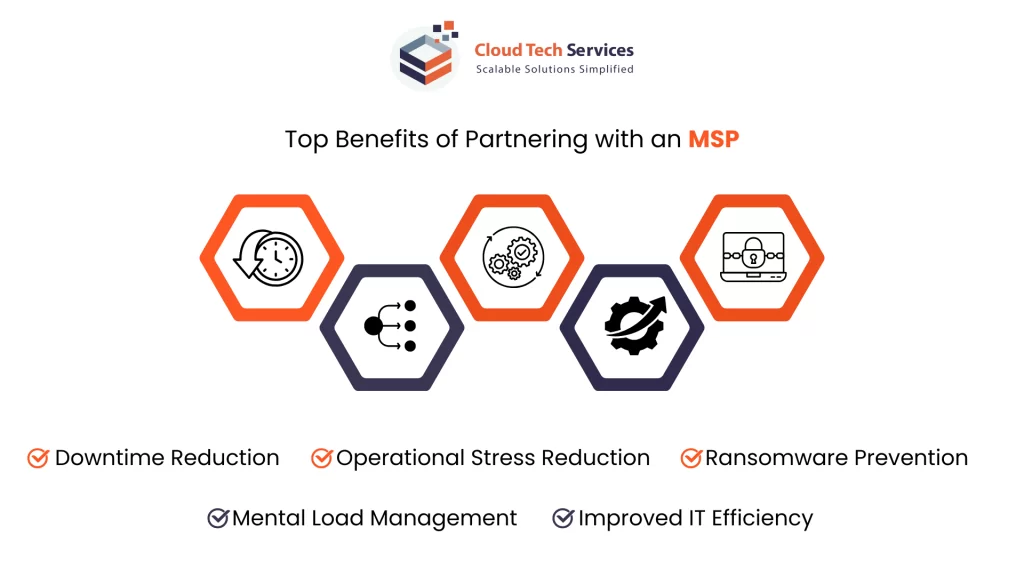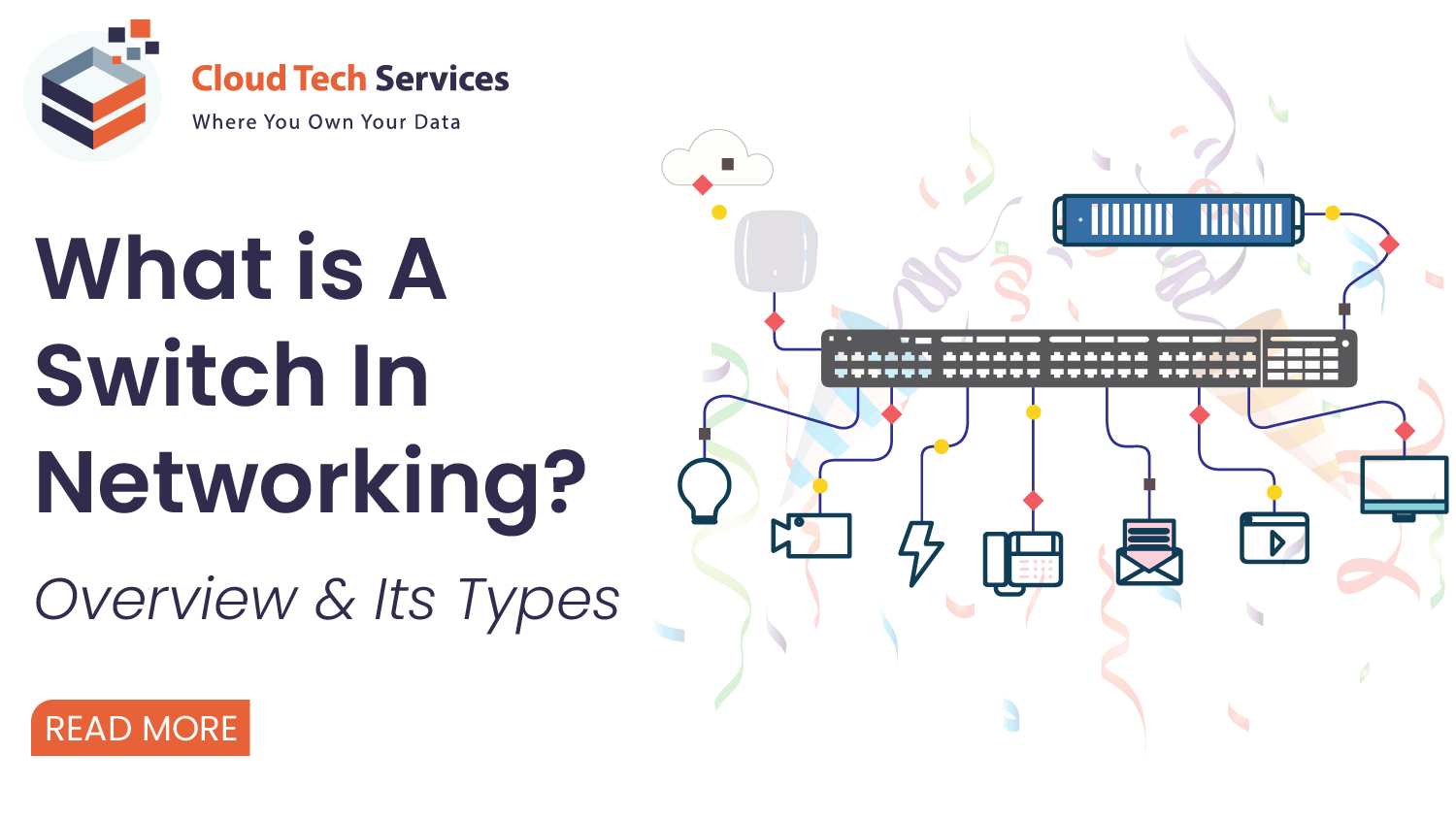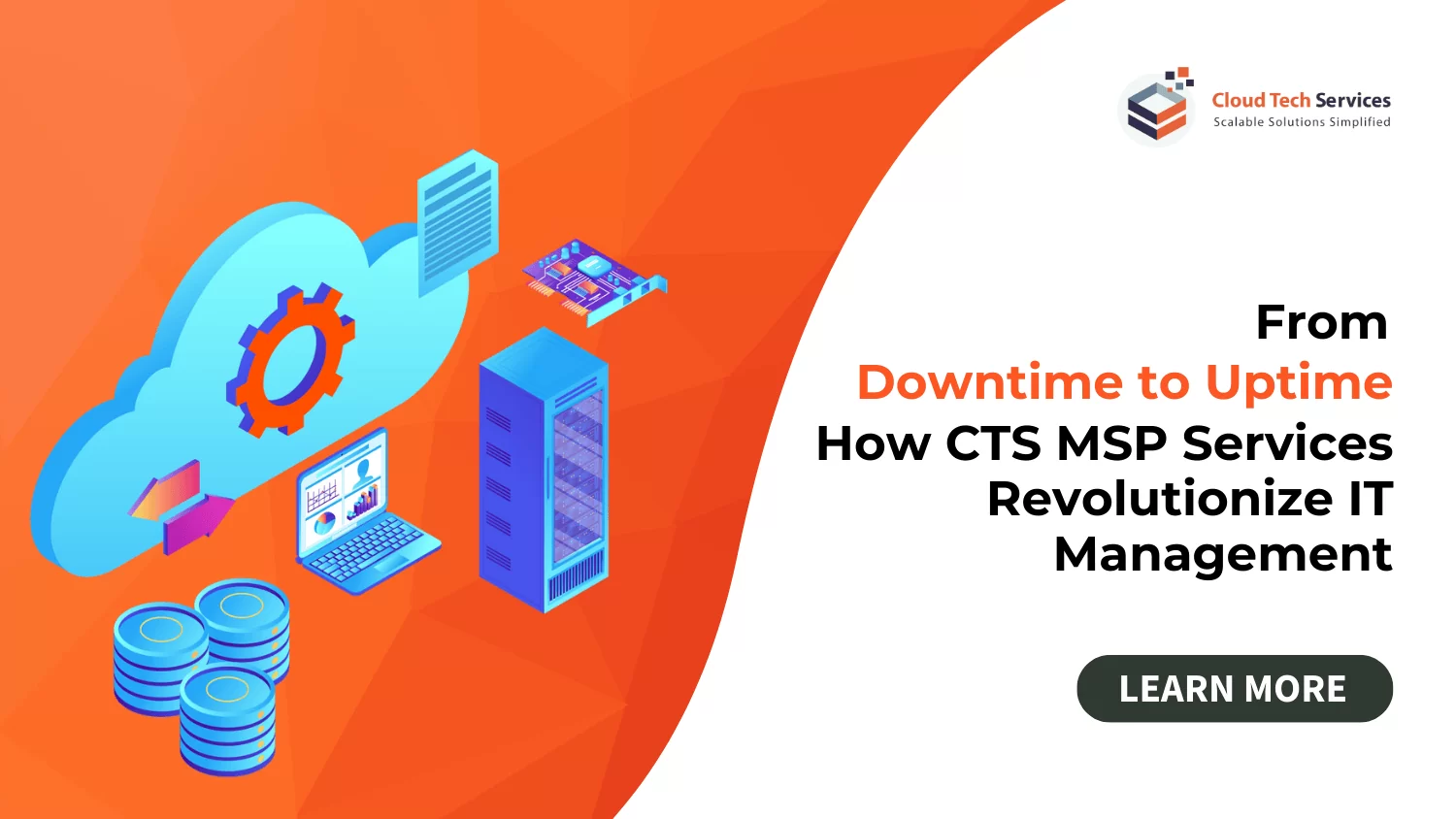From Downtime to Uptime: How CTS MSP Services Revolutionize IT Management
In today’s fast-paced business environment, technology is the backbone of innovation and competitive advantage. Yet, managing a robust and secure IT infrastructure in-house can be challenging due to overwhelmed IT teams, budget constraints, and increasing complexity. Cloud Tech Services (CTS) addresses these challenges, empowering businesses to scale efficiently while reducing the burden on internal teams.
What Are Managed IT Services?
Managed IT Services from CTS involve outsourcing critical IT functions to specialized experts, allowing your business to focus on core objectives while leveraging advanced IT solutions. From network security and data backups to cloud optimization and help desk support, CTS provides tailored solutions to meet your organization’s unique needs.
Delivered through a predictable subscription model, CTS offers cost-effective and scalable IT support, enabling organizations, especially SMBs to access enterprise-level solutions without the overhead of maintaining an in-house IT team.
Core MSP Services Include:
- 24/7 Support & Network Monitoring: Provides round-the-clock IT support and proactive network monitoring via a Managed NOC. Ensures high availability and resolves issues before they impact operations, critical for industries like finance and telecom.
- Security Management Services: Delivers 24/7 SOC monitoring, rapid incident response, and cyber recovery. Includes backup and disaster recovery for minimal downtime, ideal for sectors prioritizing data security and compliance.
- IT Support Services: Offers multi-tiered support, from Level 0 to Level 3, to resolve technical issues of varying complexity. Enhances operational efficiency across industries.
- Hybrid Cloud Managed Services: Combines public and private clouds for optimized performance and scalability, supporting dynamic workloads for SMBs and enterprises.
- SD-WAN Solutions: Provides secure, high-performance connectivity across distributed locations, reducing costs and enhancing efficiency for large enterprises and retailers.
- Unified Communications (UCC): Integrates tools like email, video, and chat into a unified platform, boosting collaboration in sectors like healthcare and education.
- IT Project Management: Oversees IT projects from start to finish, ensuring timely delivery aligned with business goals. Critical for government and enterprise operations.

Why MSPs Are Essential for Today’s IT Teams
MSPs are more than just service providers, they’re strategic partners that alleviate IT burdens, enabling teams to focus on driving innovation and achieving business objectives.
Statistics That Prove MSP Value:
- Downtime Reduction: MSPs decrease downtime by up to 60%, improving productivity and reducing stress on IT teams.
- Operational Stress Reduction: Routine tasks like system monitoring and updates are outsourced, cutting stress by 30% for internal teams.
- Ransomware Prevention: Proactive security measures increase ransomware prevention by an impressive 151%, ensuring business continuity.
- Mental Load Management: Automating repetitive tasks like patch management lowers mental strain by 40%, freeing IT staff to tackle high-priority projects.
- Improved IT Efficiency: Streamlined processes enhance overall efficiency, enabling IT teams to focus on innovation and growth.
The Benefits of Partnering with Cloud Tech Services:
Partnering with Cloud Tech Services ensures businesses receive:
- Cost-Effective IT Solutions: Cloud Tech Services offers flexible, subscription-based managed IT solutions, eliminating the need for expensive in-house IT departments. This enables businesses to access top-tier technology without the high overhead.
- Proactive Monitoring & Support: With 24/7 monitoring and management, Cloud Tech Services ensures system stability and performance through proactive issue resolution, reducing downtime and enhancing overall productivity.
- Advanced Security Measures: Cloud Tech Services integrates robust cybersecurity protocols, including managed firewalls, endpoint protection, and continuous security monitoring, to protect against data breaches and cyber threats.
- Cloud Optimization & Scalability: Cloud services are tailored for scalability, ensuring businesses can adjust their IT resources based on demand, improving flexibility and cost-efficiency as their needs evolve.
- Expert Technical Team: Access to a skilled team of IT professionals with deep expertise in cloud solutions, network management, and system optimization, ensuring businesses remain competitive with the latest technologies.
- Improved Compliance & Risk Management: Cloud Tech Services helps businesses stay compliant with industry standards (e.g., GDPR, HIPAA) by implementing secure, compliant IT practices and regular audits.
- Seamless Disaster Recovery: Cloud-based backup and disaster recovery solutions ensure critical data is protected and can be quickly restored, minimizing the impact of unexpected outages.
- Automation & AI-Driven Solutions: Leveraging AI and automation tools can streamline processes, reduce human error, and enhance IT efficiency, especially for repetitive tasks such as patch management, software updates, and incident response.
What challenges did the global pharmacy chain face with their network infrastructure?
The pharmacy chain struggled with aging routers that couldn’t handle modern data traffic, leading to a 45% rise in network outages and frequent packet loss. Additionally, inconsistent routing protocols caused inefficiencies and higher latency, while strict compliance requirements added operational overhead. Zero tolerance for downtime and unique network needs at each location further complicated the situation.















